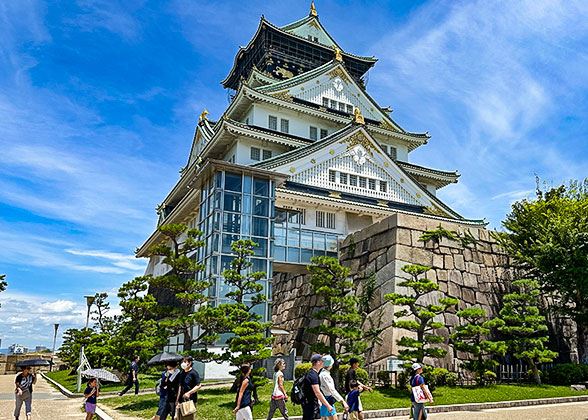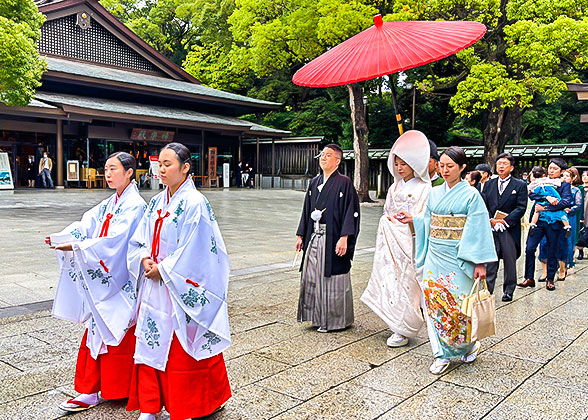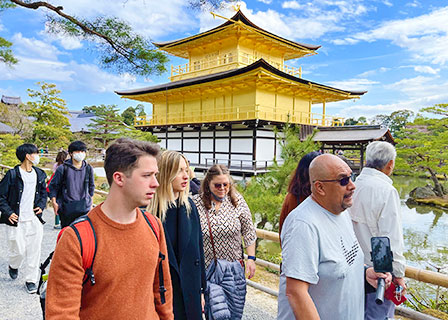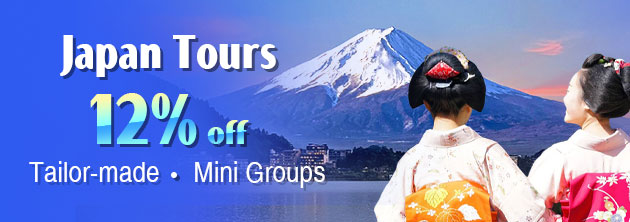- Do I Need a Visa?
- Visa-Free Travel
- How to Plan Your First Japan Trip
- How Long to Stay
- How to Spend One Week
- Cheapest Month to Visit
- Expensive Months to Visit
- Is There a Big Language Barrier
- Is It Safe to Travel in Japan
- How Much Does a Japan Trip Cost
- Payment Codes
- Money Exchange
- Currency in Japan
- 10 Things to Know Before Departure
- 15 Tips for First-Timers
- Top 6 Hiking Destinations
- WiFi & SIM Card
- Power Sockets
- Ultimate Guide for Hiking/Trekking
- Are Vaccines Needed?
- China’s Tourism VS Japan’s Tourism
- Do I Need to Tip
10 Things You Should Know Before Going to Japan
Japan is a popular destination to take a holiday around the world. As in East Asia, there are some differences on culture and living from western countries. The major things you should know before going to Japan are listed below.1. Best Time to Visit Japan
When you are planning a journey to Japan, you must know the best time to visit this country. Although Japan is visitable all year around, spring and autumn months are the best with mild weather, to appreciate cherry blossoms and autumn leaves respectively.Japanese weather bureau will predict the cherry blossom season and fall foliage season in all part of the country every year, you could pay a close attention to the weather forecast.
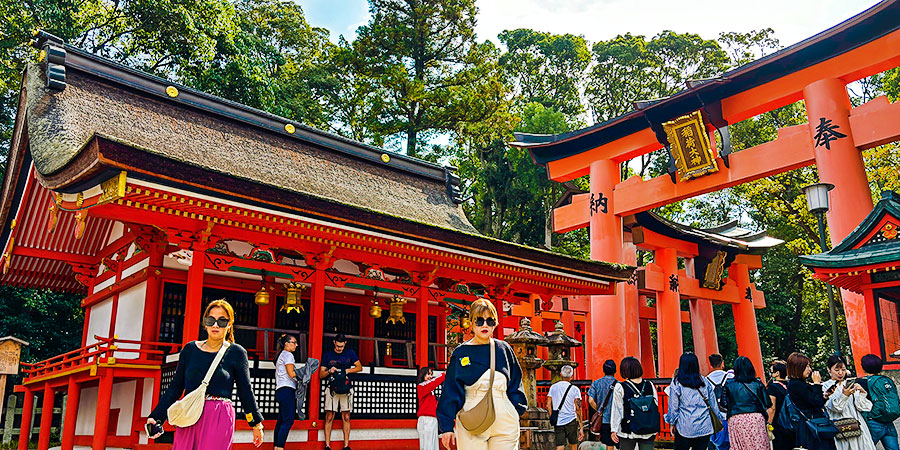
Fushimi Inari Taisha in Kyoto
|
2. Carry Some Cash in Japan
Although international credit card can be used in Japan, Japanese cash is more receptible especially when taking metro and city bus or purchasing at convenience stores, small shops, outskirts and countryside. Thus, you can exchange some Japanese cash at the airport as long as you get to Japan.3. Japan Rail Pass Deserved or Not
Japan has a well-connected public transportation network, and trains is an optimal choice to move among cities throughout the country. Whether Japan Rail Pass is a must?If you will take trains run on JR lines frequently during your journey, it is really cost-efficient to buy a nationwide or regional Japan Rail Pass. However, if you would take JR trains for a few times only, in particular the short-distance routes, a Japan Rail Pass is unworthy. Do make sure the serviceable range of the Japan Rail Pass before you purchase, as it can’t be used or has restrictions to take isolated Shinkansen bullet trains.
4. Follow the Japanese Rules when Dining

Dining in A Small Restaurant
|
Inside some restaurants, there are special no-smoking seats for guests. When you come to such a restaurant, the waiter/waitress would ask you whether you need a no-smoking table, do you smoke, or do you mind smoking. Some restaurants are equipped with a button beside the seat or table, the waiter/waitress would respond and come for ordering, etc. as soon as possible. If there is not, please call the waiter politely.
![]() Read more details about Japanese Table Manners
Read more details about Japanese Table Manners
5. No Need to Leave a Tip in Japan
Japanese have no tradition of tipping, so don’t tip no matter when you having dinner at a restaurant, taking a taxi, asking for help of doorman and server, and so on. Some Japanese may be angry if you insist on tipping. Otherwise, there would be a surcharge of service fee added on your bill sometimes, thus you don’t have to tip indeed.
![]() More about Tipping in Japan
More about Tipping in Japan
6. Stick to the Left
According to Japanese traffic rules, you should walk, ride, and drive in the left direction, which might be different from some countries. To take an escalator, Japanese may stand to the right and leave the left for people in hurry to scoot. However, subway stations and some organizations appeal to people to stand on both sides and not to walk on escalators nowadays.7. Enjoy Queueing
Japanese adhere to queue for everything, including checking out at shopping malls or exclusive stores, waiting a vacant table for dining, buying a favorite snack or food, going to a bank, and entering the museum for a visit. You would see many scenes of long queues in Japan, so don’t be surprised at such a phenomenon and enjoy a leisurely time while waiting.
|
|
|
8. Drop Litters into the Proper Trash Cans
Japan carries out a strict system of refuse sorting, thus you must throw the garbage into the proper trash cans. As Japanese never eat while walking nor smoking on the streets, they have little garbage to be threw in public. Some shopkeepers would tell you that you can eat up at/in front of the store and leave the waste into their trash cans. Or, some Japanese would rather take the garbage home for sorting as they don’t find a proper trash can outsides. On the outer packaging of many goods, it will be indicated what kind of garbage the different parts should belong to; thus, you can put them in accordance with the identifiers.9. Punctuality is Everything in Japan
Japanese are very punctual, and they have contributed to high on-time performances of all kinds of means of transportation. Trains in Japan are almost never late, or even depart earlier. Even if it is a 50-second late, there will be an apology broadcast in the train carriages. So do flights and other vehicles. Therefore, you need to make sure that you could catch the flight, train or bus when travelling to Japan. Also, if you make an appointment with someone, you’d better be dead on time.

A Running Train with Cherry Blossoms
|
10. Don’t Worry about Earthquakes
As is known to all, Japan is an earthquake-prone country. But there is nothing to worry about the frequent small earthquakes, as you can’t feel it probably and the houses and buildings are quite earthquake-resistant. Japanese have been used to these small earthquakes and earthquake drills, they would tell you how to cope with an earthquake or find the nearest earthquake shelter safely. So don’t freak out when travelling to Japan.
Read More:
![]() An In-Depth Comparison between China’s Tourism and Japan’s Tourism
An In-Depth Comparison between China’s Tourism and Japan’s Tourism
- Japan Trip Planning
-
- 15 Tips for First-Time Travelers to Japan
- How to Plan Your First Japan Trip
- How to Spend One Week in Japan
- How Much Does a Trip to Japan Cost
- What Vaccines Are Needed to Travel to Japan
- How Many Days Do I Need in Japan
- Do I Need a Visa to Go to Japan
- Visa-Free Travel to Japan
- Payment in Japan
- Is It Safe to Travel in Japan
- Is There a Big Language Barrier in Japan?
- Japan Night Tours – Top 11 Things to Do at Night
- When Is the Cheapest Month to Visit Japan?
- Peak Season – Expensive Months to Visit Japan
- The Ultimate Guide for Hiking/Trekking in Japan
- Top 6 Hiking Destinations in Japan
- Internet Connection in Japan - WiFi & SIM Card
- Power Sockets in Japan

